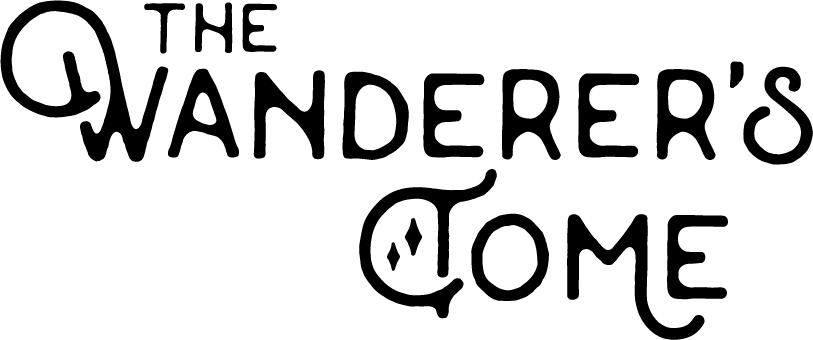Learn about our upcoming Professor Elemental RPG from its designer!
For the first time ever, The Wanderer’s Tome is publishing a game that’s not been designed in-house. What’s more, is that this will be our first RPG adaptation too. We’re, of course, talking about Professor Elemental and the Anarchist Ambassadors, a brand-new TTRPG based on the weird and wonderful universe of the chap-hop artist Professor Elemental.
Professor Elemental and the Anarchist Ambassadors is a rules-lite roleplaying game created by Michael Coolwood - the author behind the RPG Many Hands - in which players become members of the School of Whimsy, an organisation founded on the principles of joy and kindness. Using their varied and unusual skills, players will work together to help people in need across the Royal Victoria Commons: an independent, anarchist region near to Ipswich.
To give you an even greater insight into our exciting new game, we reached out to Michael to ask some questions about Professor Elemental and the Anarchist Ambassadors!
Who is Professor Elemental and what is the Elementalverse?
Professor Elemental is an award-winning hip hop artist known for his eccentric, genre-bending style. He’s performed across the globe—from festivals and hip hop shows to weddings and burlesque nights—and is a regular on the international convention scene, with gigs everywhere from Canada to Cambodia.
He first rose to fame with Cup of Brown Joy, a whimsical ode to tea that racked up over two million views and earned national press attention. This was followed by the viral hit Fighting Trousers, a tongue-in-cheek rap battle with fellow performer Mr B, which has since passed three million views and gained worldwide acclaim.
The world built through his albums, comics, and other media is affectionately known as the Elementalverse.
Ultimately, the best way to understand Professor Elemental is to hear him for yourself:
· Got 3 minutes? Start with “You’re Invited” from Father of Invention.
· Got 16 minutes? Try this playlist of songs that inspired our scenario book!
· Got 53 minutes? Dive into Nemesis, Professor Elemental’s masterpiece album.
Professor Elemental has already released several full albums and embarked on multiple tours.
Why make a TTRPG based on the Elementalverse?
I had a dream that I should pitch a TTRPG to Professor Elemental. No, I’m not joking.
Some quick background: in 2022, my buddy Toby and I entered DriveThruRPG’s game jam and created Many Hands, a co-op-focused game. It was a fun project, but due to the jam’s constraints, we couldn’t fully realise its potential. I always had it in the back of my mind to revisit and expand it into something more complete.
Fast forward to 2023—I’d just rediscovered Professor Elemental’s music after a few years away. Around the same time, I was staying with my dad to help care for him during a illness. The stress meant I wasn’t sleeping well, but one night I had a dream where I pitched the TTRPG to the Professor. I got up, checked on my dad, and then—on a whim—fired off an email to make the pitch. The rest is chap-hop history.
That might make the choice of setting seem random, but it wasn’t. The Elementalverse is all about community, whimsy, and joy—exactly the tone I wanted for a co-op, community-driven TTRPG. My subconscious had clearly put the pieces together before I had.
How did you inject Professor Elemental's vibes and music into the RPG?
Getting the vibes into the system itself was fairly straightforward. The Elementalverse is (mostly) a very silly place, so I leaned into that by giving character classes overpowered or chaotic kit to play with. For example, there's a class called the Chaos Gremlin, who has access to an item called The Mother of Invention:
---
The Mother of Invention
What do they say about necessity being the brother of invention? Brother, mother, any other sucker, they’re getting inspired babyyyyy.
Use: The mother of invention is a small box with a hand crank. When the Gremlin works the crank, it creates a small disaster. The disaster creates the necessity for invention. In other words, by creating a small disaster, you create the circumstances for your team to truly flourish.
Mechanics: No rolls for this one. The Gremlin and GM work together to come up with a convincing disaster. The disaster is caused by cranking the box, but it doesn’t necessarily come from the box. The box causes the disaster to happen, but it does so with the wonderful magic science of chaos theory. A butterfly flapping its wings may cause a tornado on the other side of the planet at some indeterminate point in the future, but by turning the crank of the Mother of Invention the same magic science may cause a tornado to spontaneously appear here, and now.
The Elementalverse’s vibe is one of whimsy, weirdness, cosmic horror and steampunk.
The game is full of content like that—delightfully weird, chaotic, and imaginative.
Injecting Professor Elemental's vibes into the pre-written scenarios was a bit trickier. His music isn’t just whimsical and silly—it also includes cosmic horror, narrative arcs, even entire albums with an ongoing story. To reflect this, I had to identify the core vibes of his work and make sure the scenarios covered that range.
As for the music itself, there are plenty of little references throughout the game, and most of the major NPCs appear in songs from across his discography. Several scenarios are also directly inspired by tracks—The Saffron Queen is based on The Attic, and Fête Worse Than Death draws from the song of the same name.
How does community, co-operation, kindness and joy empower minority groups? And, why does that matter?
Power can mean a lot of things, but one way to measure it is by our ability to make change—to get things done. Billionaires do that with money. For the rest of us, especially marginalised communities, power comes from collective action. Community and co-operation are how we build that power. We work together, support each other, and achieve things we couldn’t alone—whether that’s organising anti-deportation actions, building mutual aid networks, or holding protests.
On a personal level, co-operation expands our reach. But more than that, it creates resilience—because no one is left to fight alone.
Kindness and joy might seem less strategic than solidarity or organisation, but they’re just as vital. They remind us why we’re building power in the first place: to make life better. If we lose sight of that, we risk replicating the very systems we set out to challenge. When kindness is part of our practice, it becomes much harder to justify cruelty—even in the name of change.
Joy, too, is radical. It opens up space to imagine a better world—especially in a culture that insists this is as good as it gets. The neoliberal myth tells us we’ve already reached the best possible version of society, and all we can do is tweak the settings. But imagining something better—something kinder, fairer, more joyful—is the first step to building it.
And this matters because people are suffering. Not because they have to, but because our systems prioritise profit over wellbeing. Minority groups bear the brunt of that suffering—through systemic racism, ableism, queerphobia, poverty, and more. But even those who benefit from the status quo are being sold a life that is narrower and crueler than it needs to be.
Focusing on community, co-operation, kindness, and joy is not just a way to survive—it’s a way to build a future worth living in. A world where we fight for each other, not just against injustice.
Tea plays a pretty important role in the Elementalverse.
Does Professor Elemental's music play into the RPG in particularly unique ways?
Not directly through mechanics—there’s no rolling dice to a rhythm or using chord progressions to resolve combat. Instead, the music influences the game through its tone, characters, and storytelling. We treated the songs like a sourcebook: narrative threads, world details, and emotional cues. Several scenarios are directly inspired by specific tracks, and many of the game’s characters first appeared in his lyrics.
A game with fully integrated musical mechanics is definitely something I’d love to explore in the future—though I’d need a collaborator who actually knows music theory to pull it off.
Why make an RPG that revolves around players helping each other and using unconventional approaches, instead of big heroics and glory?
I’ve always found it strange that most TTRPGs are about groups of people—but their mechanics rarely reflect that. If one character helps another, the reward is usually something minor: maybe a re-roll or an extra die. The stories are about teamwork, but the systems are still built around individual actions.
So part of my goal was to centre co-operation in a meaningful way—mechanically, narratively, and thematically. I’m an anarchist, and my politics are rooted in community and mutual aid, so it felt natural to design a game that reflects those values. But beyond that, I wanted to explore a space that most other games haven’t really touched.
That said, I’d push back a bit on the idea that this game doesn’t include big heroics or glory. It absolutely does—but those moments come from the team working together. Just like a D&D party unites to defeat a dragon, or a Vampire: The Masquerade coterie joins forces to pick out the best eyeliner, Professor Elemental and the Anarchist Ambassadors is about solving problems through collaboration. The heroics are shared, and the glory belongs to the group—not the lone hero. Individual actions still matter, of course—but they’re part of a larger, collective triumph.
Why should non-Professor Elemental fans care about this TTRPG?
First, the game system itself is unusual and inventive. While I’m not claiming to be the first designer to focus a TTRPG on co-operation, it’s still remarkably rare. Most players haven’t experienced a system where teamwork isn’t just encouraged but built into the core mechanics—and that makes this game stand out.
Second, the world of Professor Elemental is accessible and fun, even if you’ve never heard a single track. It’s a whimsical steampunk setting full of silly nonsense and joyful absurdity—but it also has unexpected depth. Players can enjoy tea-fuelled adventures and surreal inventions, or dig deeper into themes of community, resistance, and mutual aid. Scenarios like The Saffron Queen offer a more serious tone, while others lean fully into the chaos.
Whether you’re here for the whimsy or the politics—or both—there’s something in this game for you.
A crowdfunding campaign for Professor Elemental and the Anarchist Ambassadors is set to launch in November, subscribe to our newsletter to stay on top of updates and announcements.
Prototypes for the Key to the end of Time






